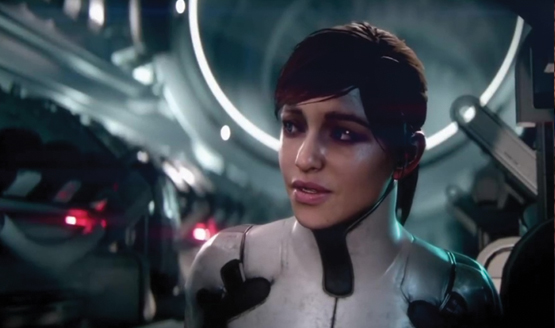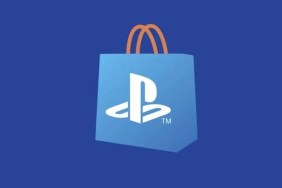Pop quiz, hotshot! Barring the sweeping sci-fi stories, far-future settings and RPG mechanics, what’s the one thing Horizon Zero Dawn and Mass Effect Andromeda have in common? Neither was tethered to a Season Pass on day one.
In launching its bold new IP, Guerrilla Games doubled down on creating a strictly single-player experience — that means no drop-in/drop-out multiplayer, no seamless co-op, no microtransactions — and Horizon was all the better for it. That’s not to say that Guerrilla is done and dusted with Aloy and her apocalyptic adventure; just last week, we not only learned that Horizon blew past 2.6 million sales in a fortnight, but also that the Dutch studio is hard at work on the first story expansion, the details of which remain under lock and key for the time being.
Finding a Happy Medium
And though Andromeda’s wonky animations are surely tip-top of the priority list for BioWare at the time of writing, the studio no doubt has plans to roll out a smattering of post-launch content over the coming weeks and months. A combination of free and premium add-ons looks to be the strategy, while we’ve already caught wind of the game’s microtransactions which, just like Mass Effect 3 before it, allow players to unlock multiplayer content using real-world money. Those Andromeda Points can cost anywhere between $5 and $99 and should you choose to indulge in Mass Effect Andromeda’s in-game currency, you’ll obtain multiplayer packs filled with a random assortment of items and various goodies.
Here’s a reminder of that Tweet from BioWare General Manager, Aaryn Flynn.
Nope
— Aaryn Flynn (@AarynFlynn) January 7, 2017
So far, so familiar. But the fact that Mass Effect Andromeda and Horizon Zero Dawn both launched sans Season Pass is indicative of a changing tide. Granted, that the former chose to forego a Season Pass isn’t all that surprising, given previous Mass Effect games have traditionally released without said incentive. Horizon, meanwhile, is another matter entirely, considering that Guerrilla’s wildly ambitious franchise-starter launched into a largely risk-adverse AAA market, one in which developers often lean on Season Passes as a proverbial crutch to open up another stream of revenue.
Because in theory, once you boil down the concept of a Season Pass to its very essence, the premium package ought to foster a mutually beneficial relationship between consumer and developer. On one end of the spectrum, the latter receives a revenue boon that in turn helps maintain a steady stream of post-launch content — be it technical fixes, cosmetic additions, or full-blown expansions. It also works as an added incentive for those players who wish to pre-order ‘Game X’ and feel confident in the developer’s vision, but it’s here that problems start to arise.
Of all the many complaints and criticisms levelled against Season Passes, the one that tends to bubble to the surface often occurs when consumers feel ripped off or outright burned by content that is either sub-par or, worse, not quite what the developer promised. Batman: Arkham Origins is often-cited as a poor implementation of post-launch DLC, given Warner Bros. Montreal stuffed its Season Pass with nine kinds of alternate costumes for the Caped Crusader as opposed to, you know, compelling content. WB Montreal even cancelled all of the game’s DLC plans for Wii U, but that’s a whole ‘nother can of worms.
Not all Season Passes are created equal, then, and one need only look to Irrational’s handling of BioShock Infinite — the two-part Burial at Sea is arguably a better experience than Infinite itself — or CD Projekt Red, whose pragmatic approach to The Witcher 3: Wild Hunt drew praise from all across the four corners of the industry, for evidence of Season Passes done right.
As a matter of fact, as part of our recurring Top 5 video series here on PlayStation LifeStyle, last year we pinpointed a handful of video games that truly delivered on their post-release promises, and you’ll find that Fallout 4, L.A. Noire and Gearbox’s gleefully over-the-top shooter Borderlands 2 were among those titles that made the cut.
A Tricky Butterfly to Pin
Closer to home, Titanfall 2 is another candidate under EA’s umbrella that ditched the traditional Season Pass in favor of a DLC model that is, quite frankly, worth getting behind. For the uninitiated, Respawn’s blistering sequel enforced a strategy that ensured all of the shooter’s maps, modes, and weapons were rolled out free of charge, thereby negating a scenario in which the Titanfall 2 community would’ve been segregated by map packs and other piecemeal content. Not all shooters have the playerbase of Call of Duty or Battlefield, after all.
That’s not to say Titanfall 2’s DLC model is exclusive to first-person shooters — far from it. In fact, Psyonix implemented something similar with Rocket League, and an onslaught of post-launch content has ensured the studio’s über-addicting racer only continues to be a runaway success. Perhaps that aforementioned combination of free and paid add-ons really is the best course of action. So, for instance, a game like The Witcher 3 and its 16 pieces of free DLC wins over the naysayers, before delivering two premium expansions in the form of Hearts of Stone and Blood and Wine. The perfect scenario? Maybe.
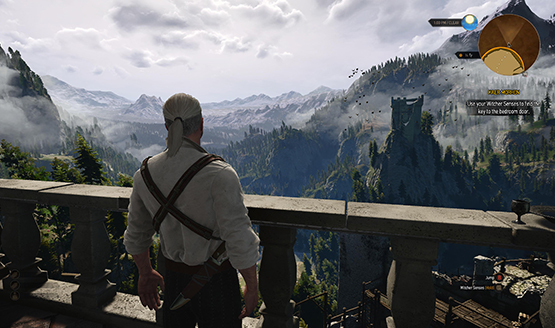
And though it obviously can’t be applied to all games regardless of genre, developers ought to take a leaf from The Witcher 3’s book when it comes to delivering post-release DLC that is at once compelling and fair. As we mentioned above, we are beginning to catch signs of a changing tide. Titanfall 2, Horizon, and Mass Effect Andromeda stand as examples of games that are adopting a different strategy when it comes to DLC models, but they’re not the only ones.
Anne Blondel-Jouin, Ubisoft’s VP of Live Operations, noted recently that the continued success of Rainbow Six Siege has forced the mega-publisher to rethink its approach to downloadable content.
“The key is if it’s not adding something on-top of the actual experience of the game, then it is no good. Because you’ll be asking for more money for the wrong reasons. Also, if the content is compulsory for the gamers, it’s no good as well. It is a way to deliver more fun to gamers, but they have a choice to go for that extra fun or not.”
Even if the traditional Season Pass is on the wane — or, at the very least, subject to a small overhaul — post-launch content is here to stay. Exactly how developers handle their respective DLC models, though, will no doubt influence the ways in which audiences resonate with said content. Top-tier developers in the vein of CD Projekt Red have arguably struck a healthy balance between free and paid content, and now that EA has adopted a more pragmatic approach to Titanfall 2 and, to a lesser extent, Mass Effect Andromeda, we’re intrigued to see whether that mentality carries over to the release of Star Wars Battlefront 2 this holiday season. Because if there’s one game from 2015 that came under heavy fire for its pricey DLC plan, it’s Battlefront.
Essential Reading:
- Top 5 Best Ways to Upgrade Your PS4
- Confirmed PS4 Games Out in Q2 2017
- Mass Effect Andromeda – Everything You Need to Know
Mass Effect Andromeda info dump
-
Mass Effect Andromeda - EYNTK
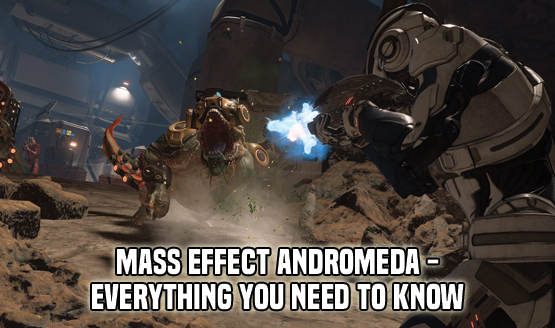
Mass Effect Andromeda is almost upon us! Let's take a deep dive into BioWare's spacefaring adventure to pinpoint Everything You Need to Know.
-
What is Mass Effect Andromeda?
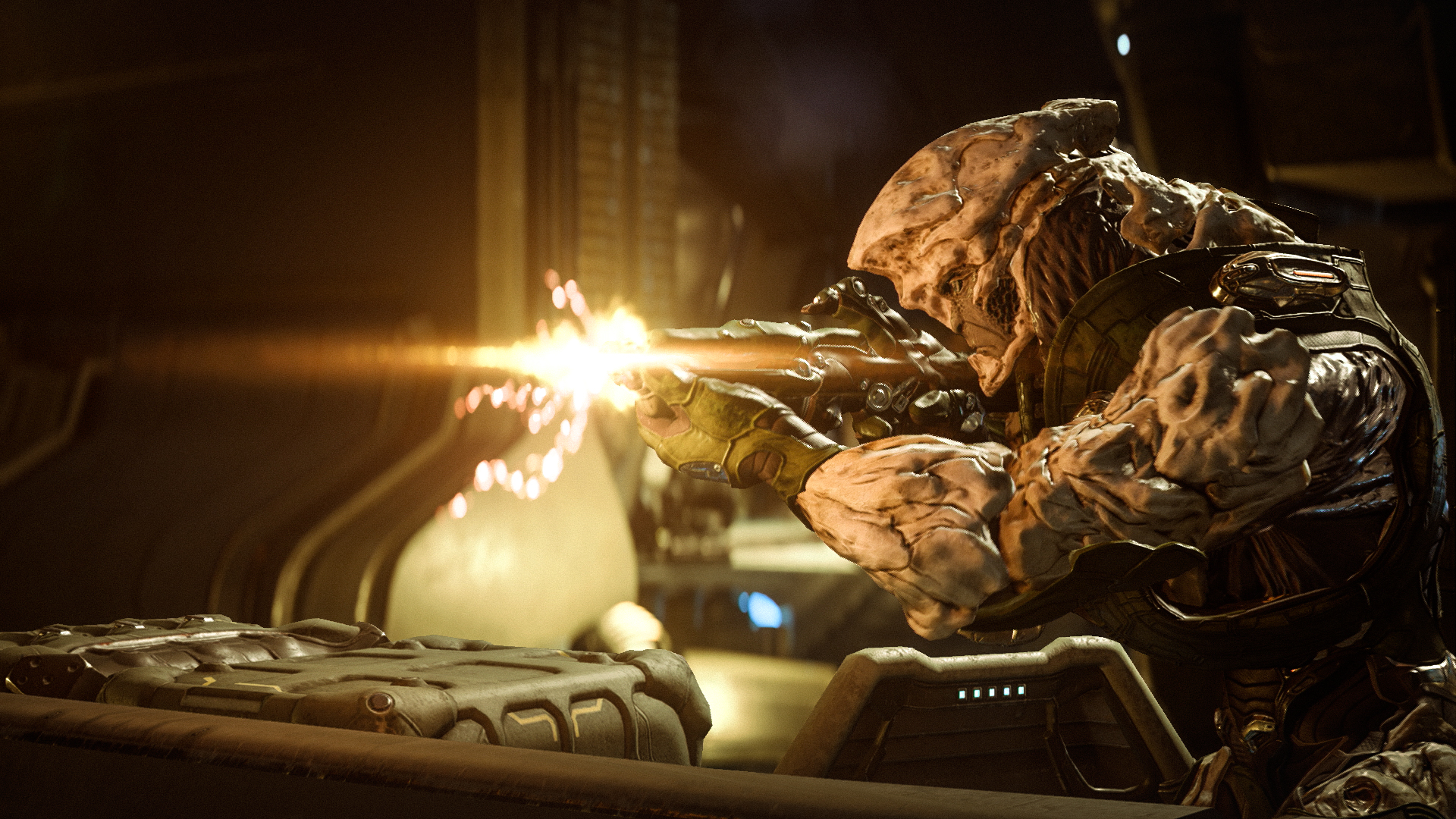
It’s the latest entry in the Mass Effect series that heralds a dramatic shift for BioWare’s spacefaring series — new characters, new aliens, and a whole new galaxy to explore. We are, of course, referring to Andromeda, our galactic neighbour that plays host to most, if not all of the game’s story. Speaking of which…
-
What’s the Story?
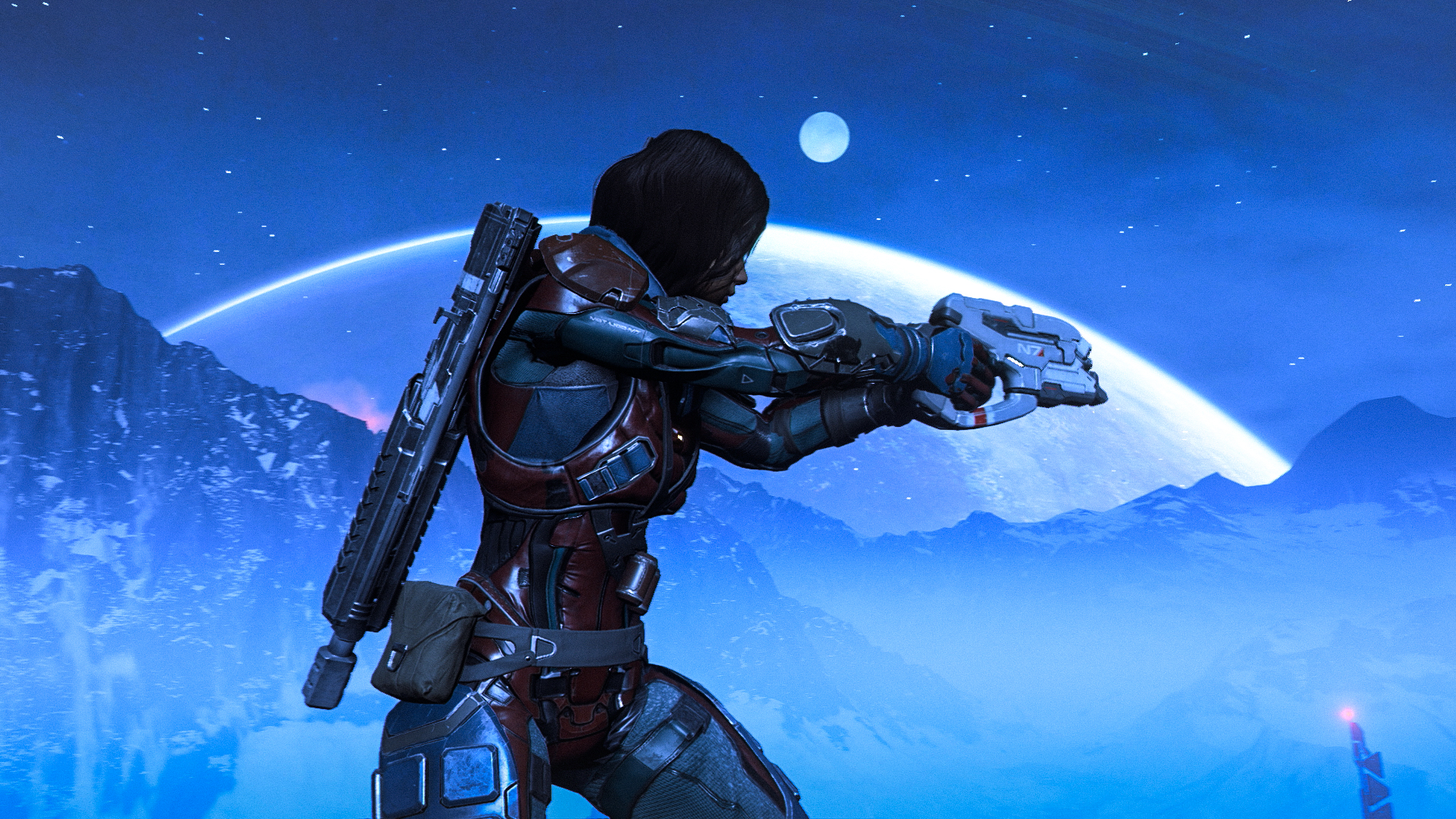
Set some 600 years after the events of Mass Effect 3, Andromeda opens at a time when humanity and their neighbouring alien races have plot course for the Andromeda Galaxy in the hopes of locating a new home. Once you choose between Scott or Sara Ryder, you'll awaken in the year 2819 upon an ark led by their Pathfinder father, Alec Ryder. Which brings us to...
-
The Andromeda Initiative

The year is 2185, and the Milky Way galaxy is no longer the thriving hub of life it once was. The Citadel Council rules that each of the galaxy's four primary races must ship 20,000 people off on a 600-year journey on huge spaceships known as Arks. And so, the Andromeda Initiative is born.
-
The Ryders

Meet Scott and Sara. Voiced by Tom Taylorson and Fryda Wolff, respectively, they're the dual protagonists of Mass Effect Andromeda, and it's fair to say that there's a spark of sibling rivalry underpinning their relationship.
-
An All-Star Voice Cast
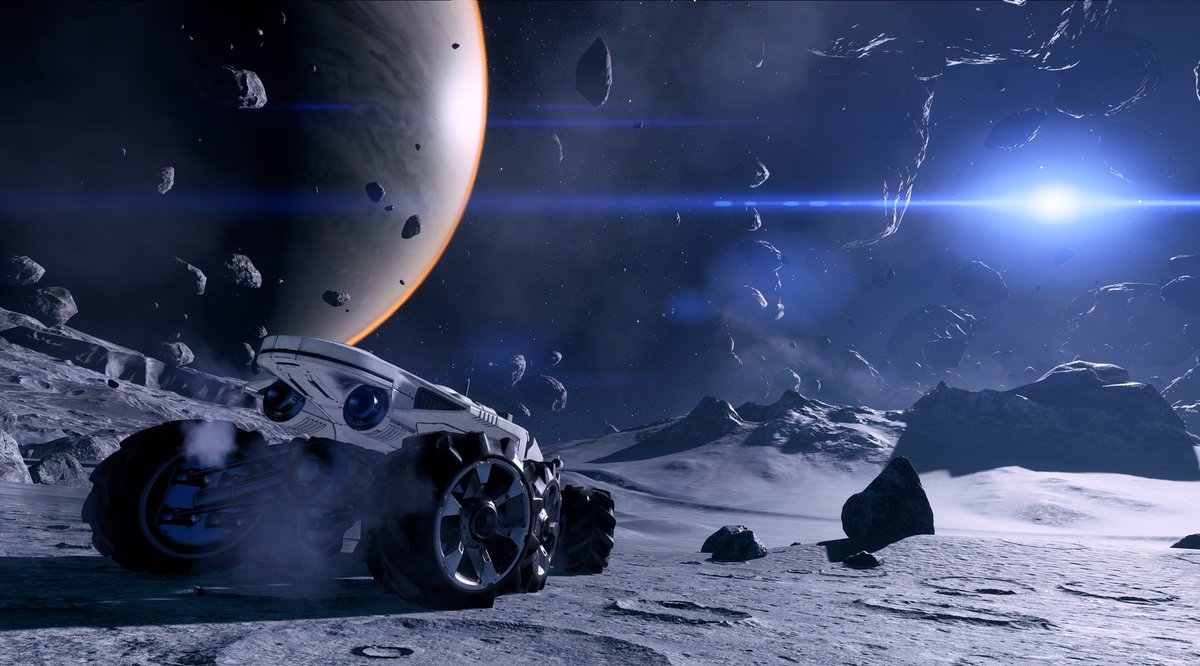
Part and parcel of Mass Effect's lasting appeal is the sheer volume of characters populating BioWare's space opera. Your squad mates include Nakmor Drack (Krogan), Vetra Nyx (Turian), Peebee (Asari), Cora Harper (Human), Liam Kosta and Jaal (Angara), and we know that Game of Thrones actress Natalie Dormer is among the voice cast.
-
Powered by Frostbite
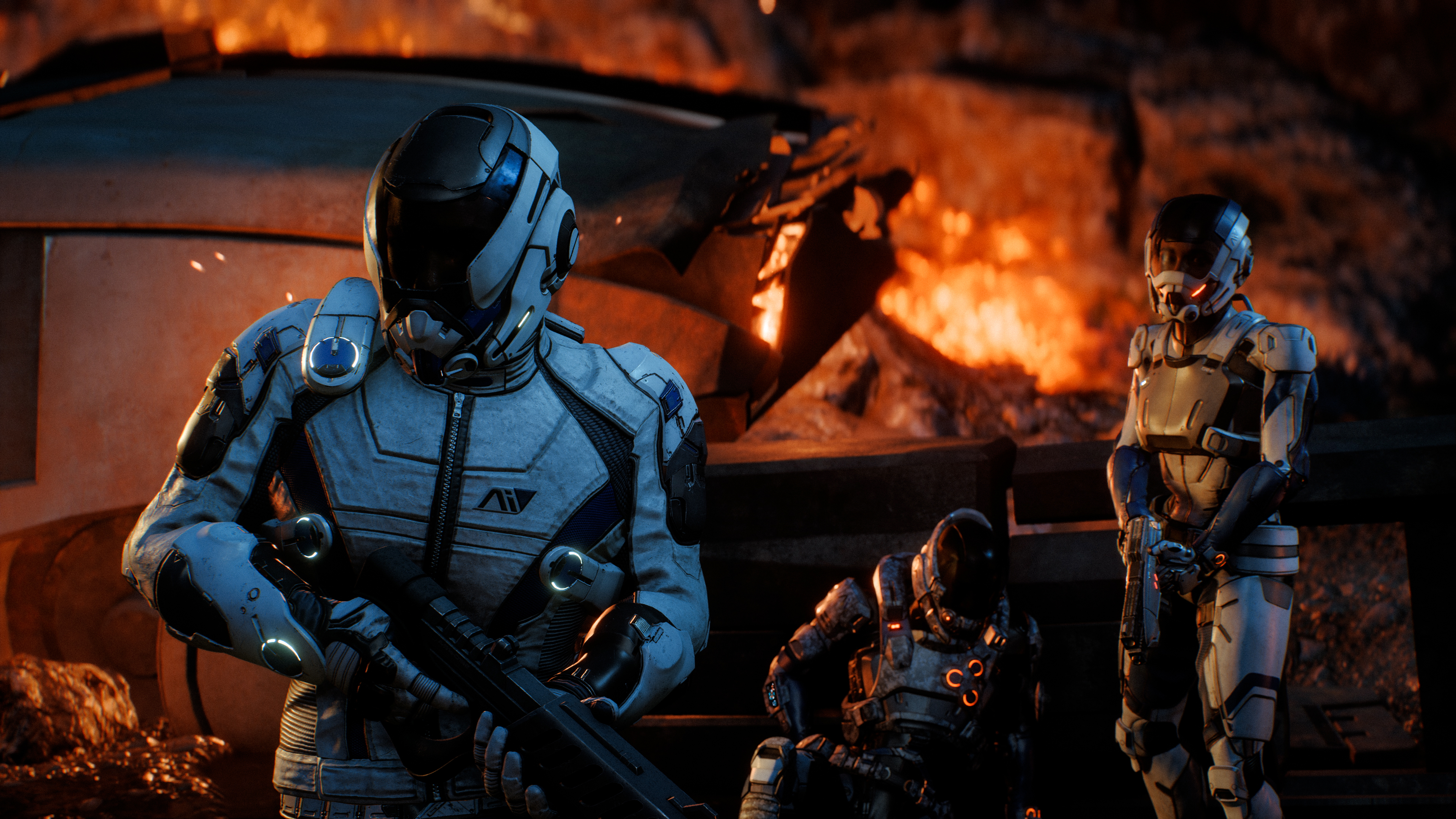
Not unlike FIFA 17 before it, Mass Effect Andromeda heralds a shift to the Frostbite game engine. It's EA's in-house engine that's served as the beating heart of the Battlefield franchise for generations and now, it is (almost) Mass Effect's turn to join the fray.
-
MASSive Worlds to Explore
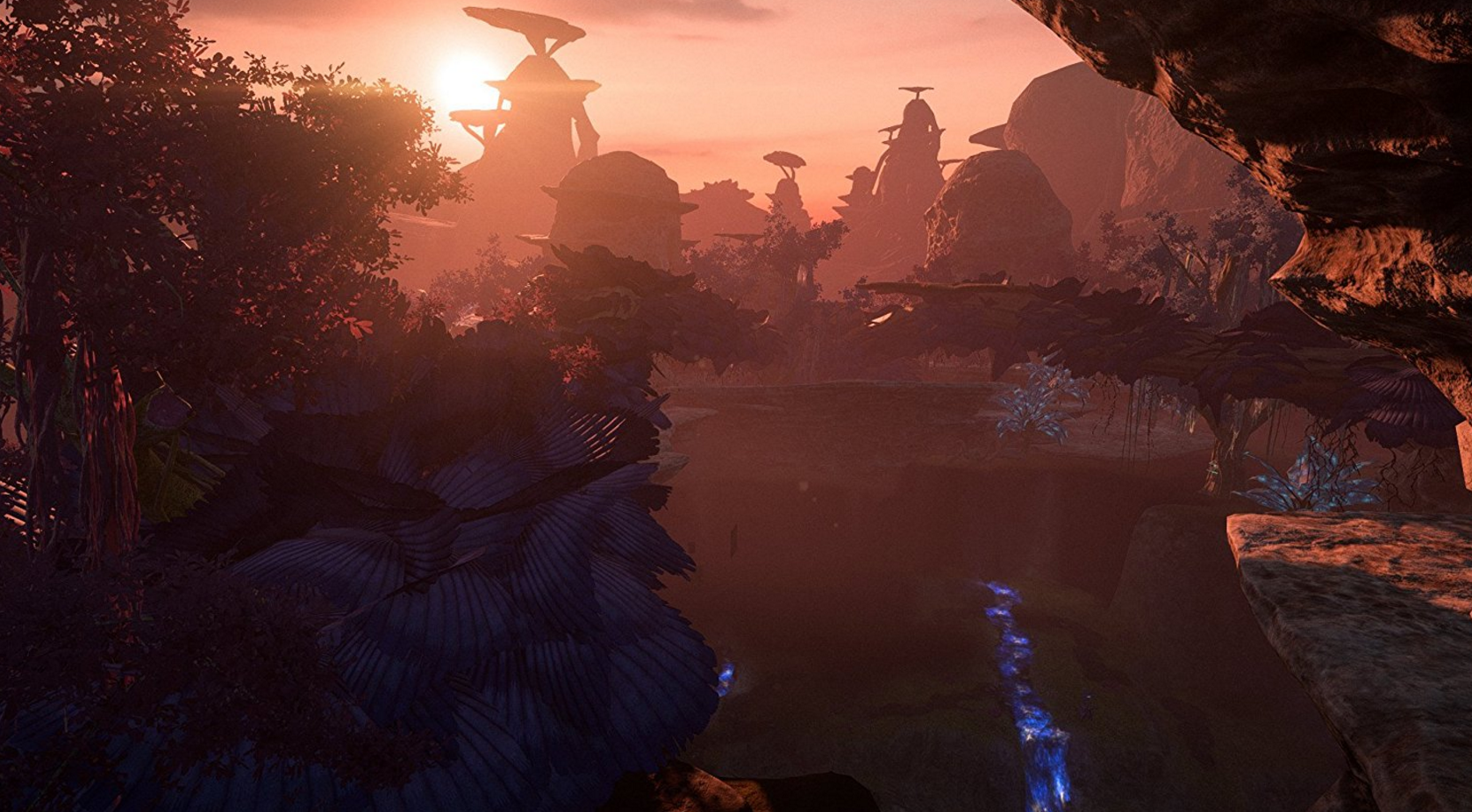
What’s a sprawling space opera with suitably huge planets to explore? Mass Effect Andromeda represents an opportunity for BioWare to up the ante, and according to producer Fabrice Condominas, some of the planets featured in the Andromeda galaxy are bigger than the entirety of Dragon Age: Inquisition.
“Oh, it’s bigger than any of the three [games in the original trilogy]. In terms of the footprint, for example, it’s gigantic. One planet can be the size of Dragon Age: Inquisition as a whole. Not all of them, but some of them. But it gives you an idea of scale.
“But also in terms of, for example, the progression system, it’s probably the deepest we ever made. So even in terms of mechanically, the crafting system is probably the one we pushed further than any in the three. So it’s definitely bigger.”
-
Just Don’t Call it Open World
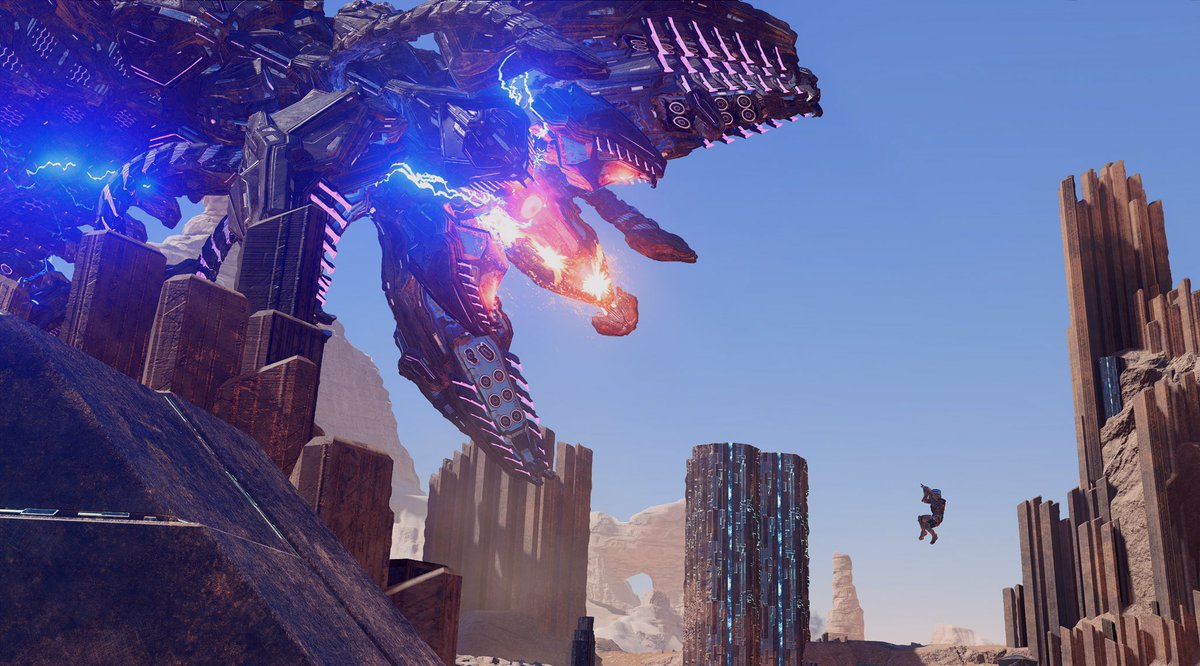
Mass Effect Andromeda is an “exploration-based game,” make no mistake about it. That means it isn’t an open-world experience, strictly speaking, with producer Michael Gamble noting that:
“You still have the concept of tight story deliverance and all the great things you come to expect with Mass Effect. The layer on top of that is a layer of exploration. Sometimes that happens in open spaces, but not always. You can cruise around some of these planets in the Nomad, but it’s not the traditional sandbox-type game.”
-
Side-Quests in the Vein of The Witcher
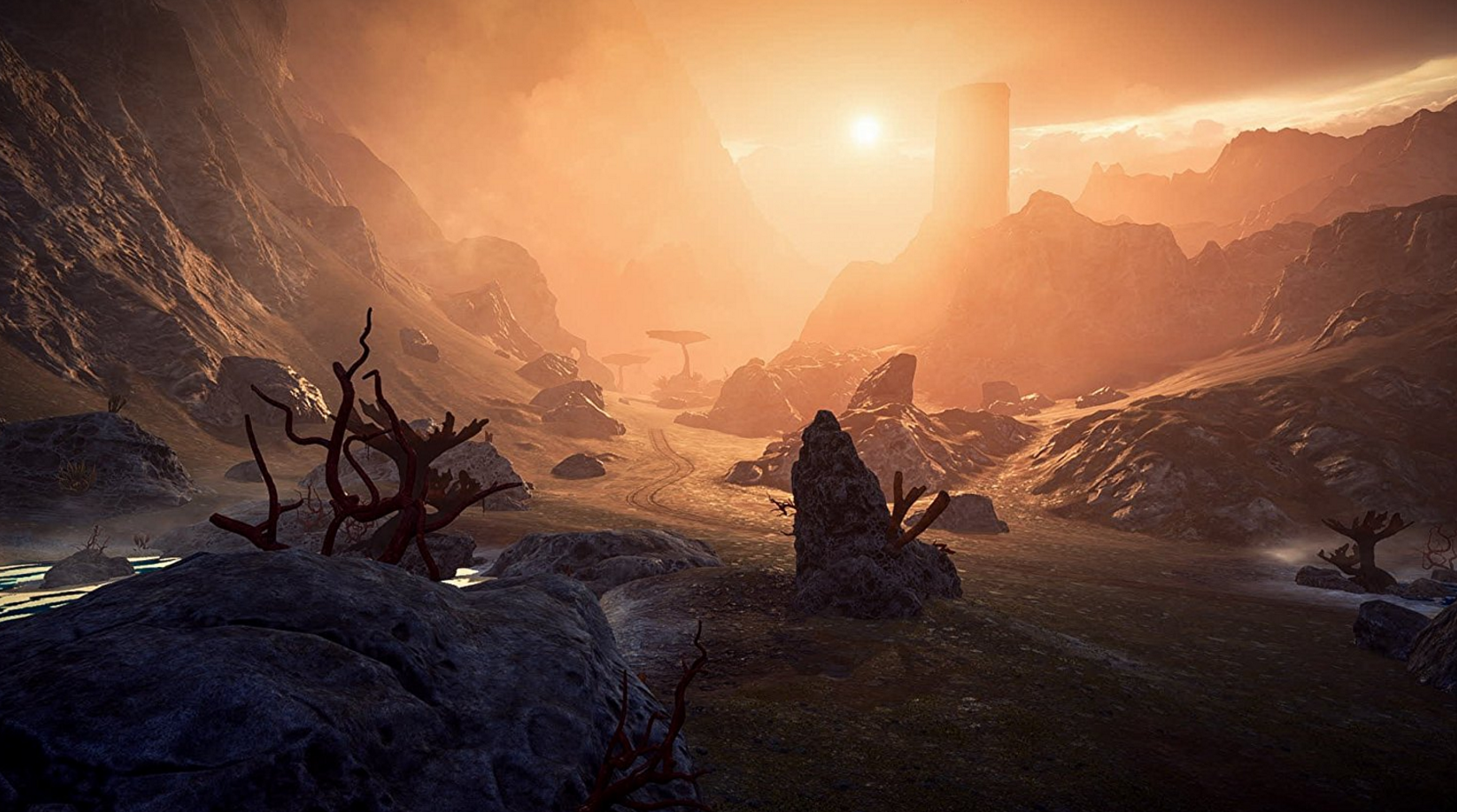
If you’re gunning for Andromeda’s Platinum Trophy, you’ll be pleased to note that BioWare has revamped side-quests, and is taking a leaf out of The Witcher’s book. Gone are the annoying fetch quests seen in Dragon Age: Inquisition — at least, that’s the hope.
Per BioWare:
“We are approaching the completionist aspect very differently, because we’ve done and learned a lot from Inquisition. But we’ve also observed what other games have been doing, like The Witcher. And it was very important for us that the quantity of scope doesn’t downgrade the quality of whatever you are doing there.”
-
A Space Opera Through and Through
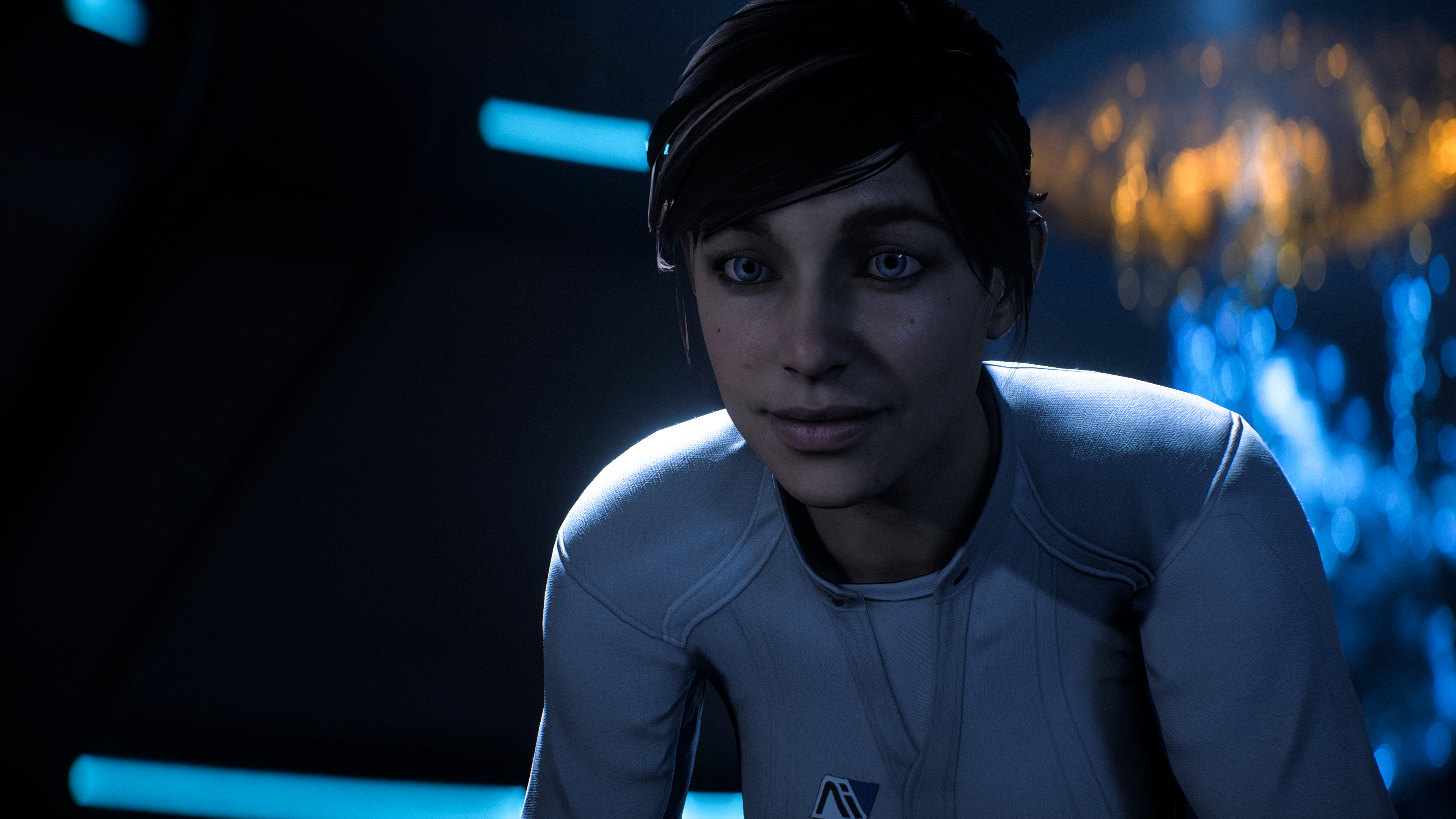
Producer Fabrice Condominas recently revealed that, while more recent entries in the series strayed into full-blown action territory, Andromeda heralds a return to the space opera you know and love.
“Yeah, I think that’s part of it. It’s also that the story of the trilogy was going narrower and narrower. Obviously that’s because you’re focused on the resolution of your story, so that’s good, but it means that you get away a bit from the space opera, from the main theme at a high level. That is definitely part of the vibe I wanted to bring back. It’s not the only aspect: you’ve got the space travel, the notion of going to uncharted worlds. It’s a bundle of things. But it is part of it.”
-
A Diverse Collection of Planets
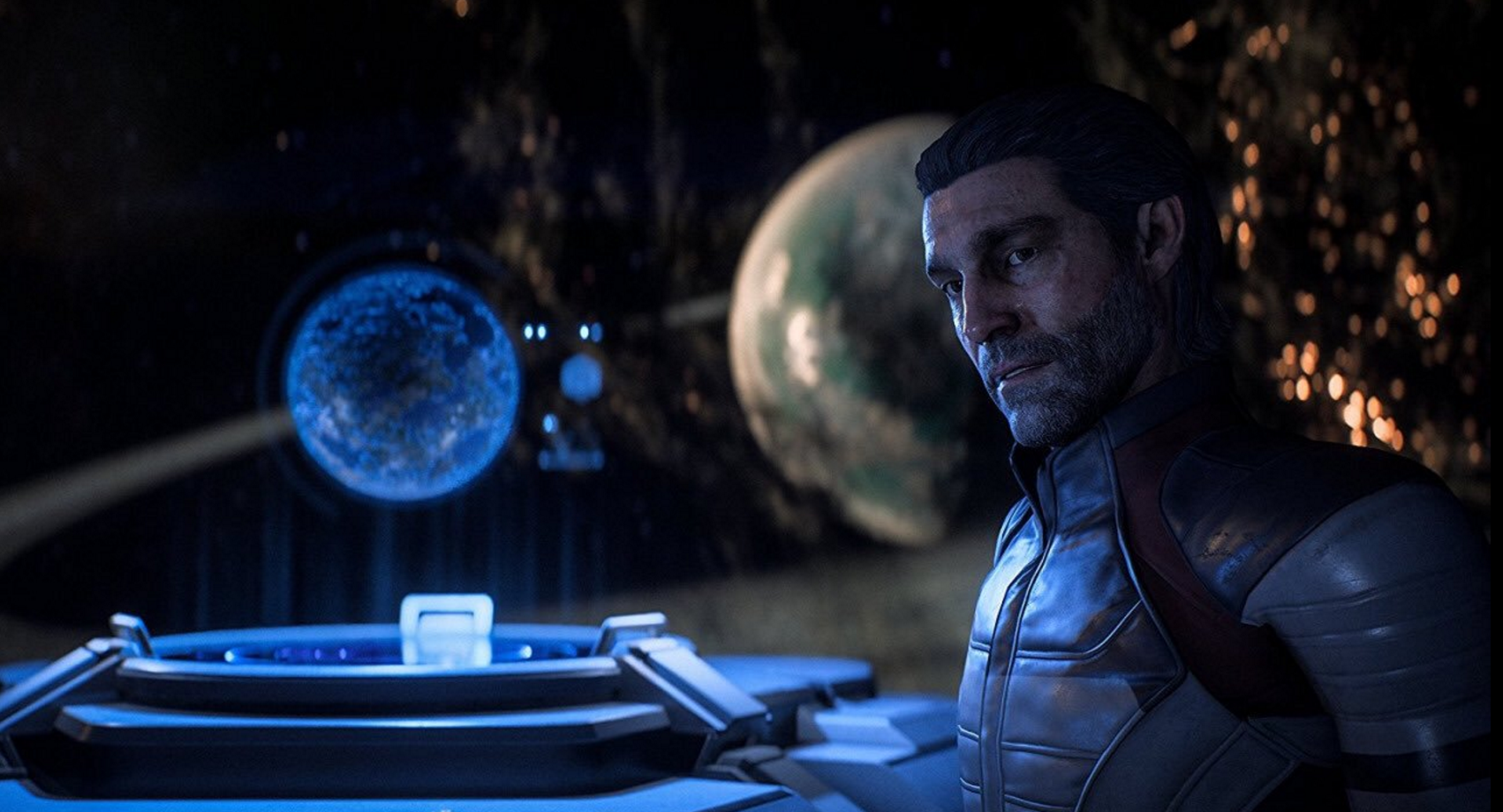
From solar radiation to bitter-cold temperatures, the planets in Mass Effect Andromeda are as dangerous as they are varied. Brace yourself for a host of environmental hazards, Pathfinder.
-
Space Romance and “Pretty Good Banging”

Knockin’ boots in the cosmos? BioWare knows a thing or two about that and sure enough, Mass Effect Andromeda won’t skimp on the romantic subplots. When asked “WHO CAN I BANG?!” by one particularly impassioned user, producer Michael Gamble replied as so:
“So many. And the banging is pretty good.”
-
Over 1,200 Unique Characters
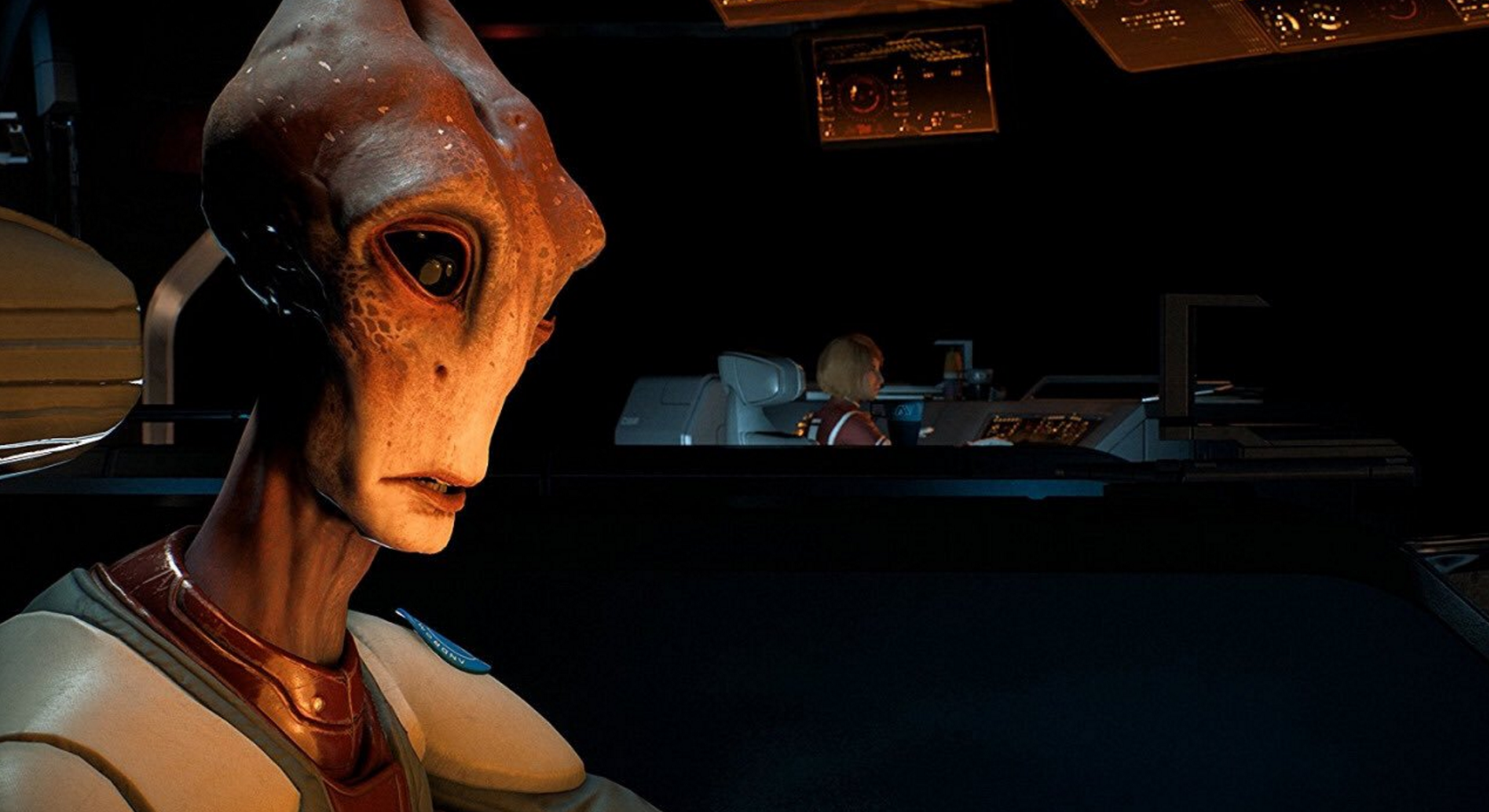
Mac Walters, Creative Director on Mass Effect Andromeda has confirmed that there are more than 1,200 unique characters in the sci-fi title. That’s a considerable markup from the previous entry in the decorated series, Mass Effect 3, which boasted around 670 characters.
“The lines of dialogue we have in Andromeda is like Mass Effect 2 and 3 combined. So the number of characters is vaster, but the amount of stuff you and that character can talk about is also larger—especially the squad, we definitely focused in on the squad.”
-
Clocked 1080p/30fps on PS4, Will Include HDR Support
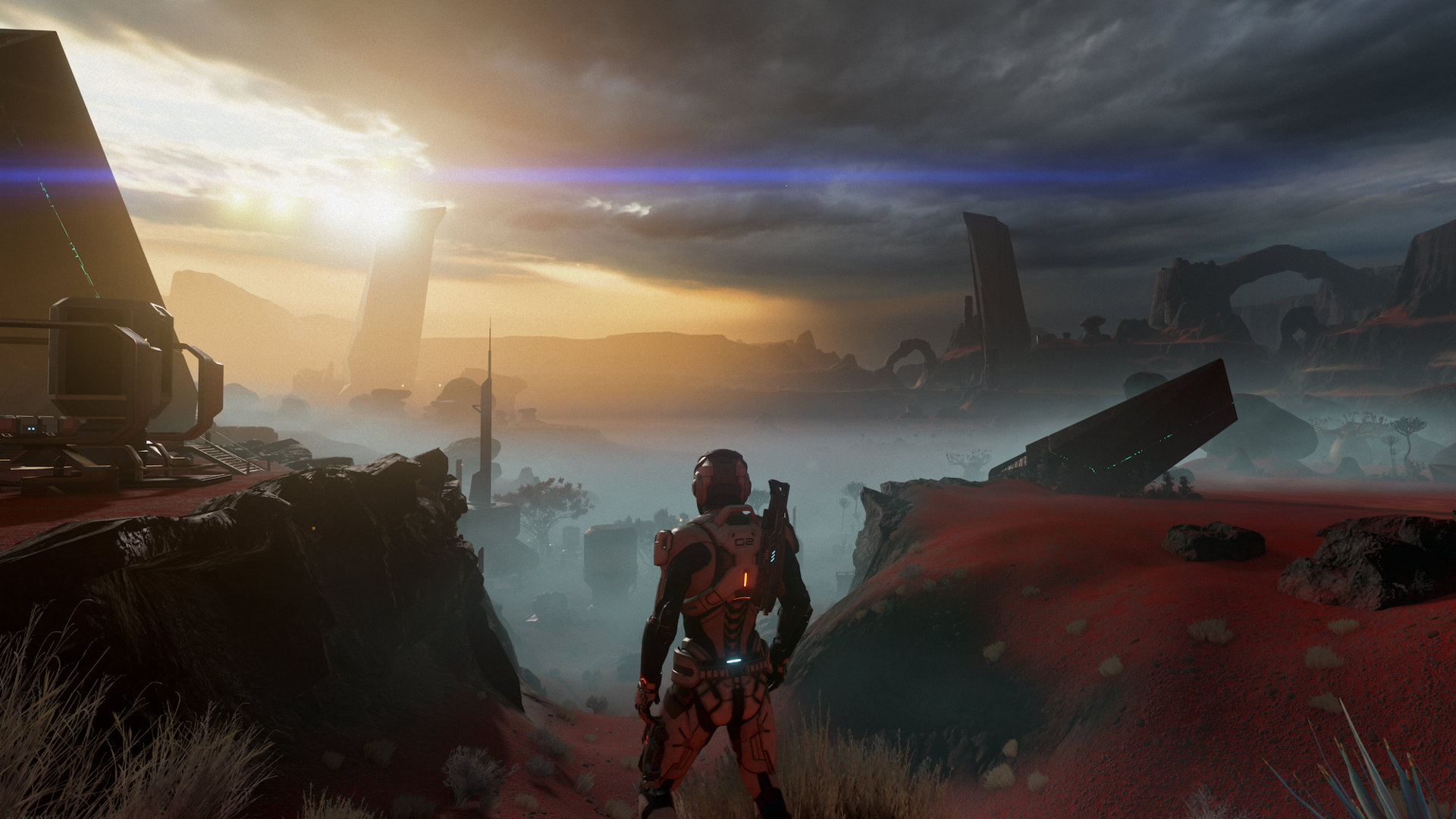
Mass Effect Andromeda has been clocked at 1080p/30fps on PS4, and will support HDR.
Per BioWare:
“Last I checked, we were like other Frostbite games on PS4 and Xbox One – 1080p and 900p respectively. All are at 30 fps. PC has uncapped frame-rate. I think we’ve even gotten over the 30 fps cap in cut-scenes, but I’ll double-check in the next couple of weeks.”
-
PS4 Pro and 4K
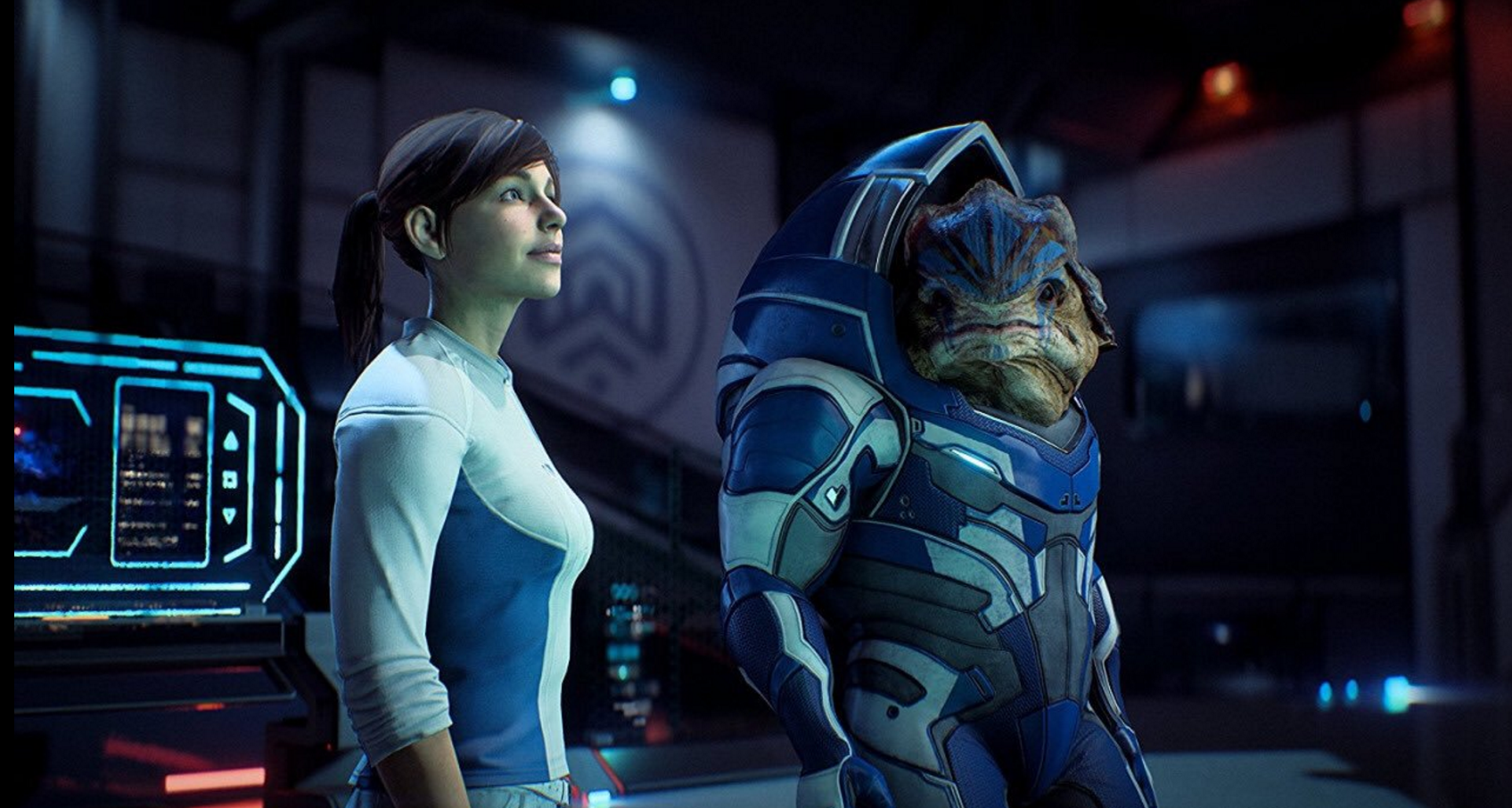
Thanks to a CG technique known as checkerboard rendering, Mass Effect Andromeda is able to achieve 1800p on PS4 Pro. It’s part of BioWare’s dual strategy to support high-end video outputs, including 4K.
“Super-sampling again is very popular for HDTV support. Mass Effect Andromeda has two very different strategies. They have checkerboard for 4K and they have a separate mode for high quality graphics at 1080p.”
-
Introducing Andromeda Points
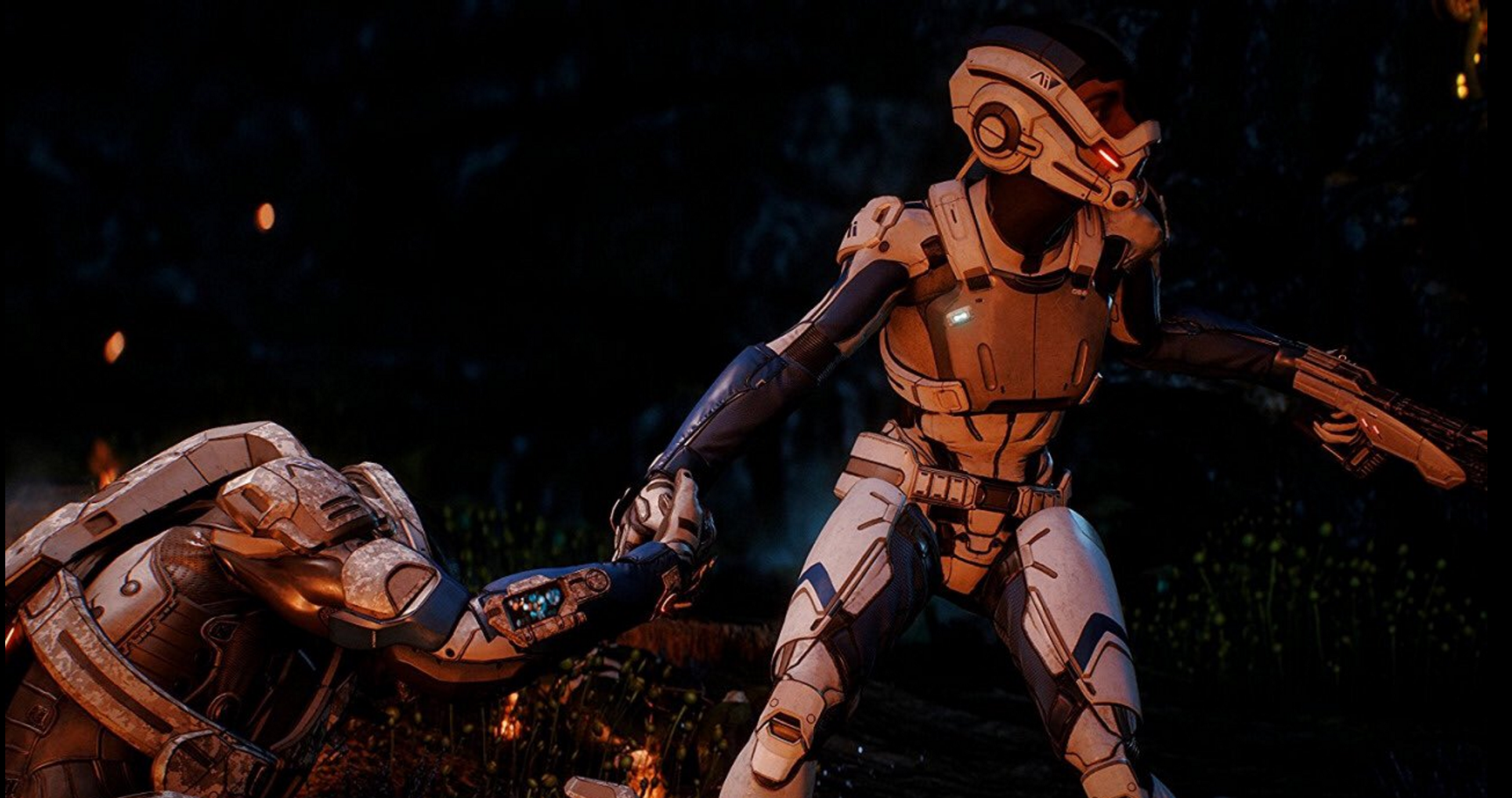
As previously reported, Mass Effect Andromeda will feature an in-game currency known as Andromeda Points. These are restricted to multiplayer and multiplayer only, and though we’ve only caught wind of the UK pricing — SKUs begin at £4 all the way up to £80 — but we’ll keep you posted if and when BioWare discloses the EU and US pricing.
“Andromeda Points are an in-game currency for the Mass Effect: Andromeda Multiplayer mode only. These points can be purchased with real world currency and can be used instead of the earned in-game currency to obtain new Multiplayer packs, which contain items used in the Multiplayer mode.”
-
Multiplayer Beta Canned
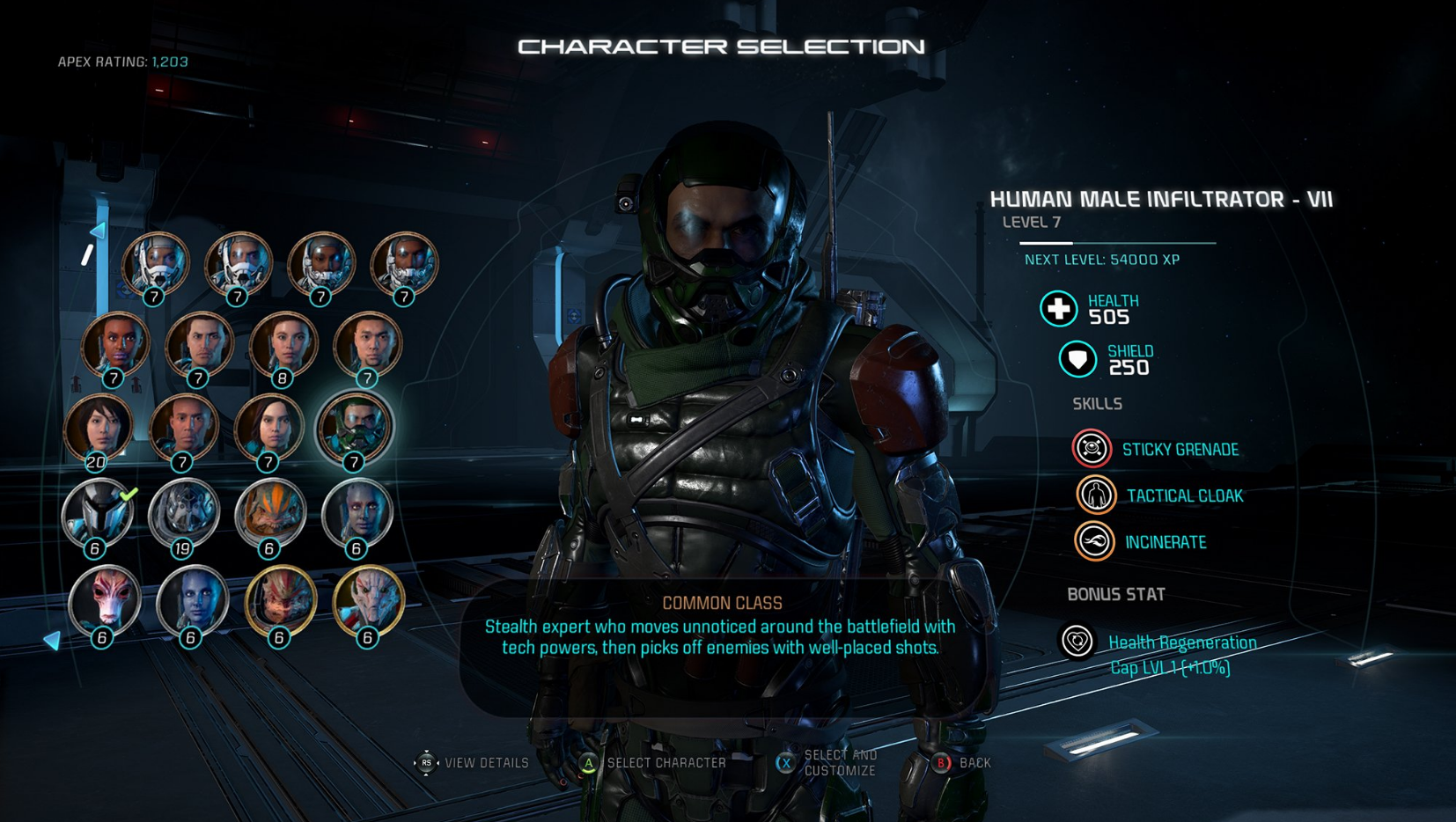
While BioWare hosted a demonstration of Andromeda’s multiplayer component at the recent PAX East 2017, the studio ultimately decided to cancel the long-anticipated multiplayer beta, stating that:
“While we will have live multiplayer at PAX East, there will no longer be a multiplayer tech test for players at home. Thank you to everyone who signed up. We look forward to seeing you in Andromeda.”
-
Free MP Maps After Launch
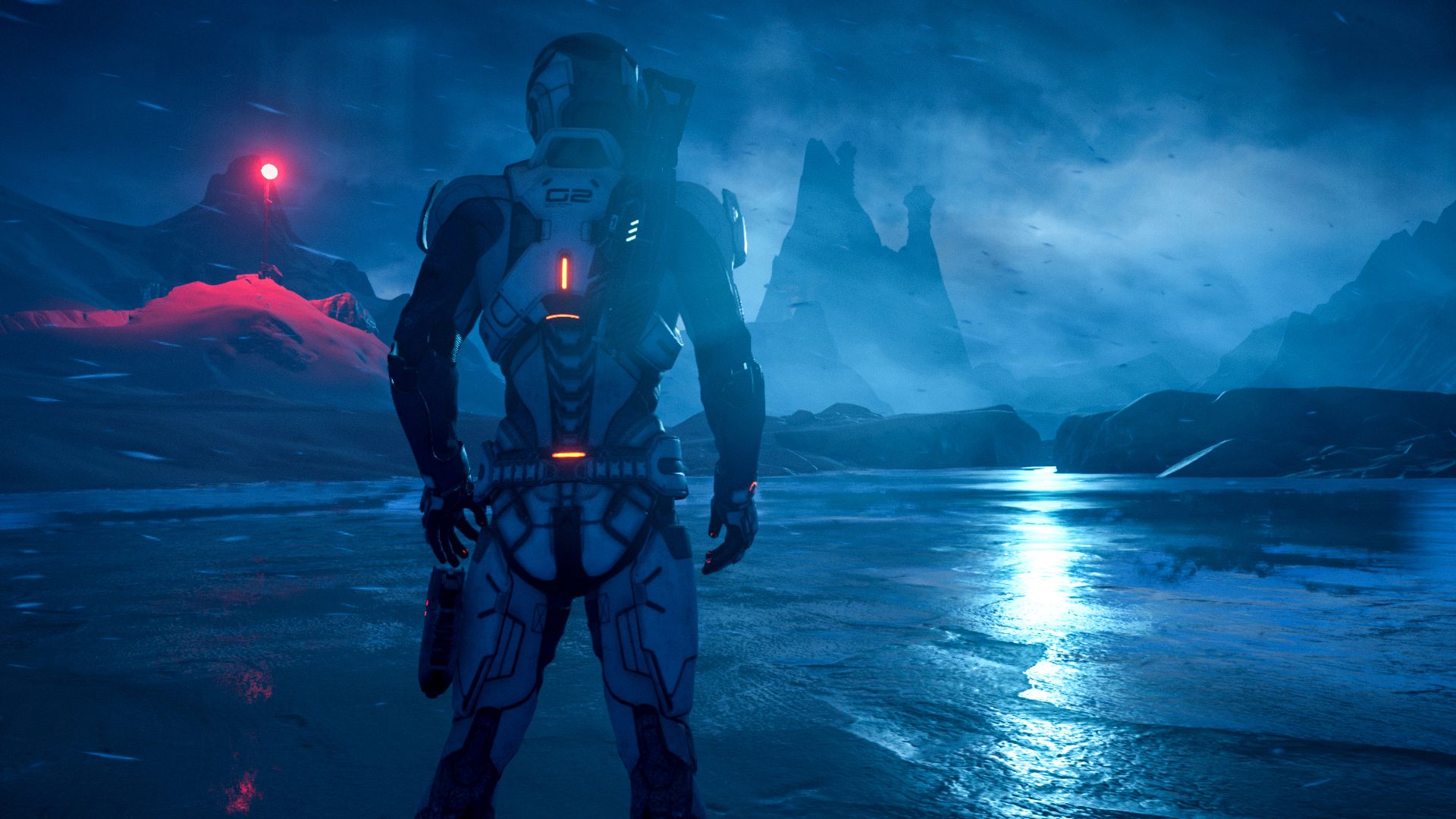
Much like Mass Effect 3 before it, BioWare is preparing to roll out a series of new multiplayer maps free of charge. Expect further details to be shared after launch.
-
No Season Pass
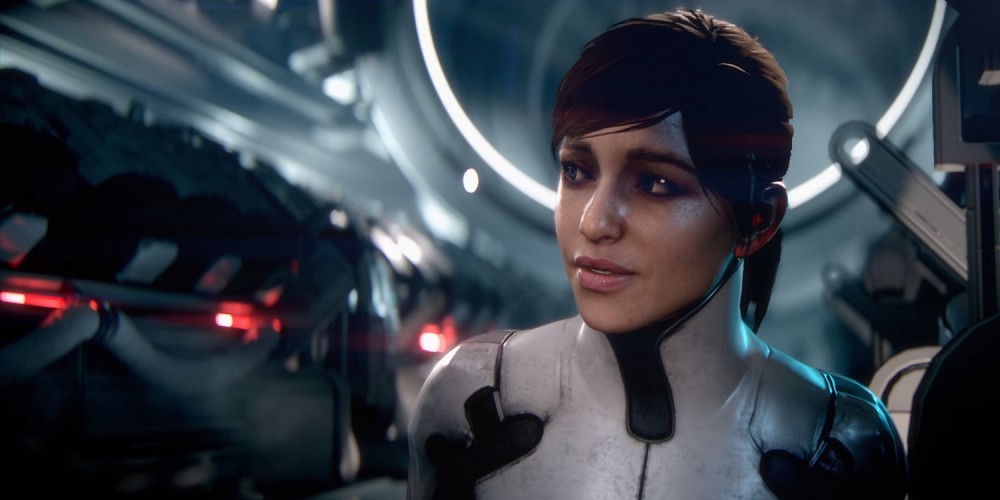
Free multiplayer DLC is clearly part of BioWare’s plan for the future of Mass Effect Andromeda, but one thing that the studio has ruled out altogether is a Season Pass, which is a fairly big departure from the EA of old.
-
Play Early With EA Access
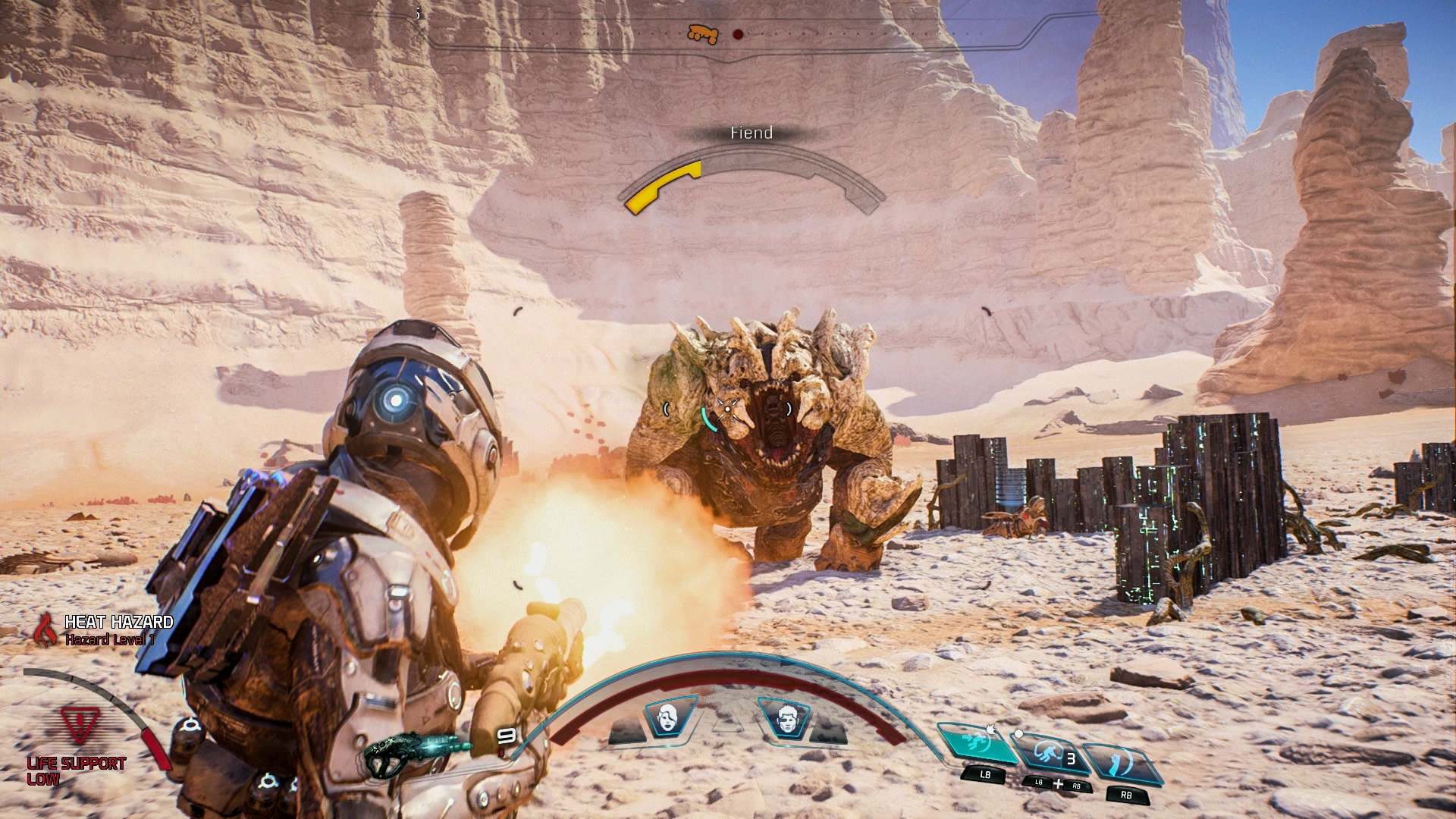
From March 16, EA Access and Origin members will gain access to a 10-hour session in Mass Effect Andromeda.
Details of how to sign up can be found here, should you feel so inclined.
"Your journey starts early with EA Access and Origin Access. Take to the stars and enjoy 10 hours of gameplay (including full multiplayer access and a chance to explore your first planet in single-player) starting days before launch. Plus, your save progress carries over if you decide to buy the full game, and you’ll save 10% automatically with your membership."
-
No Time Pressures
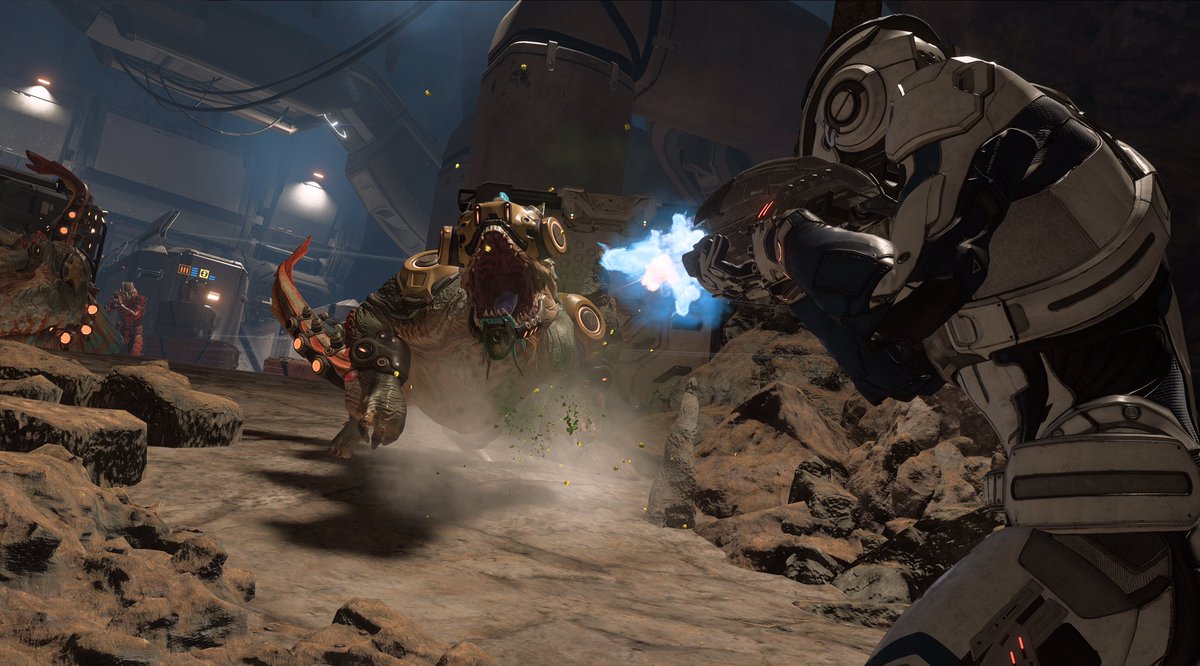
Eager to explore Mass Effect Andromeda at your own leisurely pace? Well, now you can! Thanks to BioWare’s decision to remove the series’ time pressure. No more rushing through missions and other side-quests on the clock.
Here’s what producer Fabrice Condominas had to share:
“We consciously removed the time pressure. The people in the Ark are waiting for a home, right, but this is why most of them stay in cryo and all that. The idea is, we want you to be able to explore freely. You’re right, in Mass Effect 3 sometimes it was like “what am I doing, people are dying and I’m just hanging around.
“So it’s a good question. But no, narratively, we did remove the time pressure. We keep the stake – you need to save these people – but you can take time to explore. Also in this game, unlike the others, once you’re done with the story you can keep exploring. [The world state] will remain consistent with the choices you made along the main story, but it’s still open. The game is not done when the story’s done.”
-
Lofty Sales Target
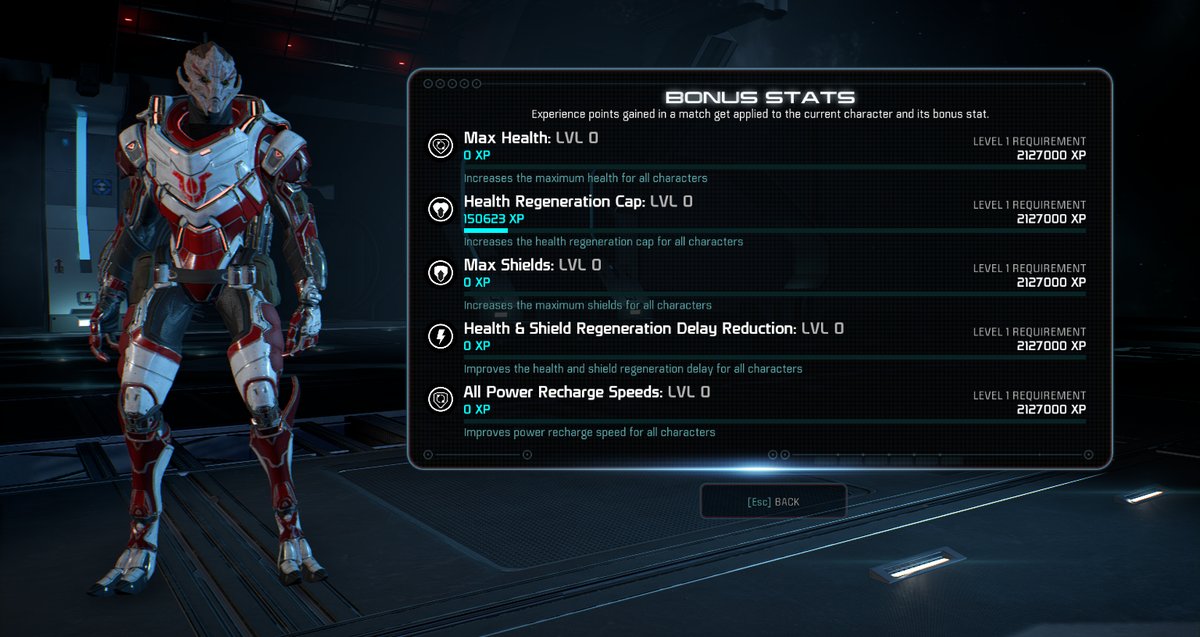
With D-day fast approaching, BioWare is confident Mass Effect Andromeda has what it takes to move upwards of 3 million copies at launch. For the sake of comparison, Mass Effect 3 sold around six million units lifetime.
-
A Hefty Digital Download
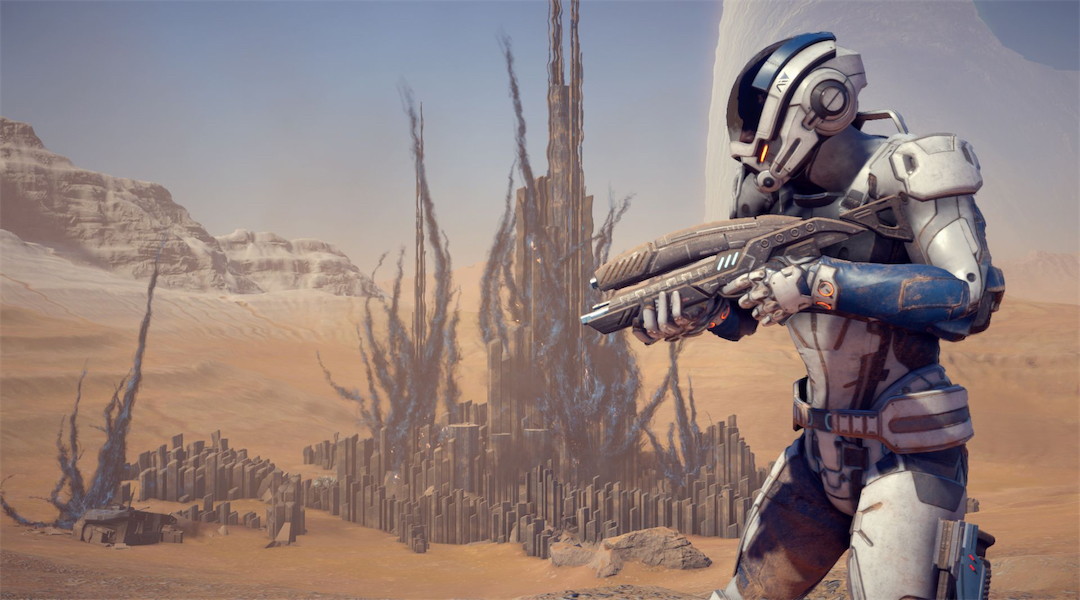
BioWare is yet to lock down the official file size at the time of writing, but according to early estimates, Mass Effect Andromeda will be “at least 45GB” on consoles, and closer to 55GB for those on PC.
-
Hands-On Preview
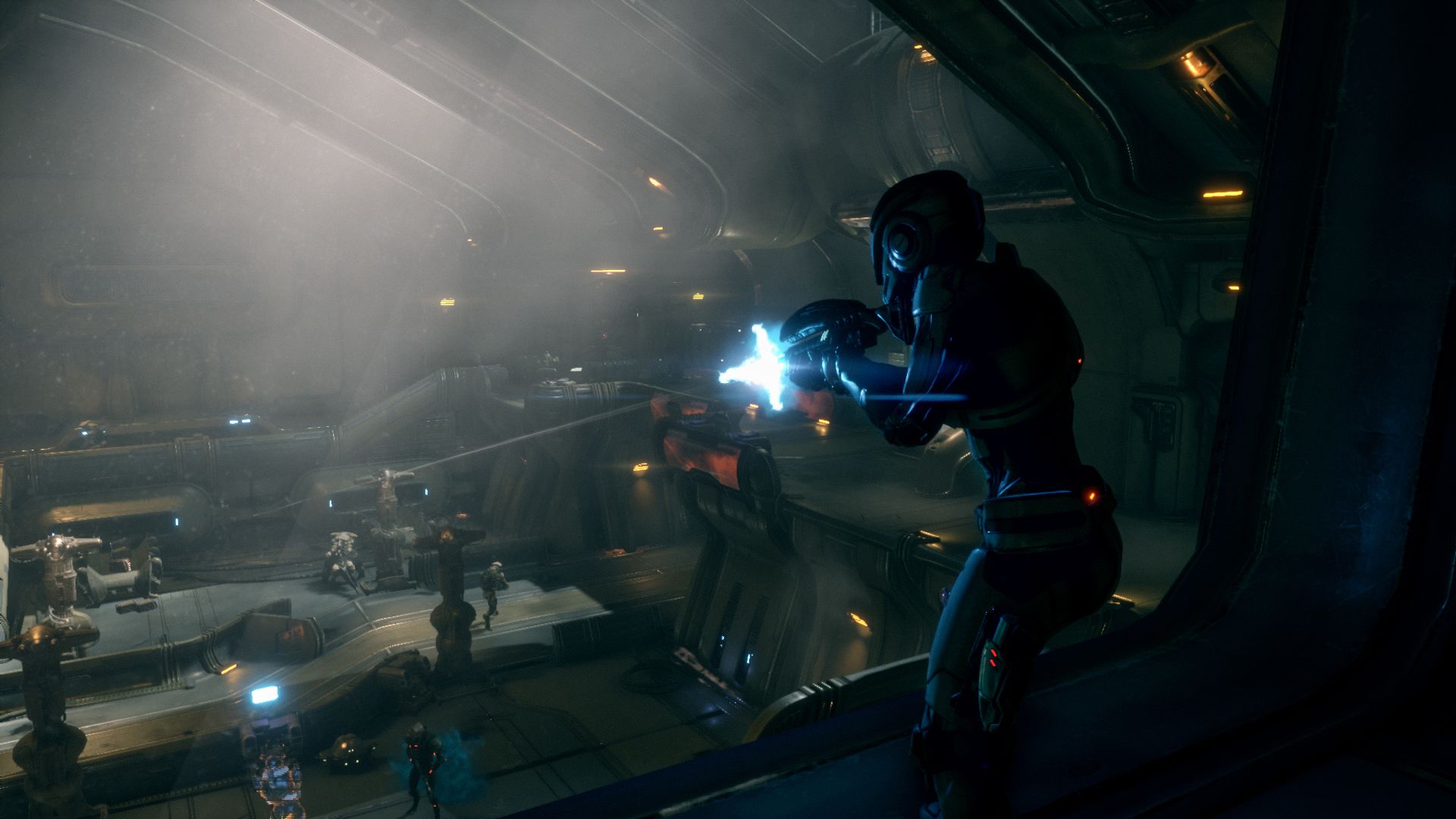
Our own Louis Edwards got his hands on an early build of Mass Effect Andromeda, and walked away largely impressed.
“Developer BioWare has taken a risk by taking a well-known franchise and creating new characters and a new story arch, all the while sticking to what fans of the series have come to love. It seems like the risk may have paid off and this is one space adventure that should be on your radar.”
-
Strategy Guides

Prima Games is launching not one, not two, but three strategy guides for Mass Effect Andromeda. Pricing is yet to be confirmed at the time of writing, but we do know the premium Pathfinder Edition (left) comes packing a Mass Effect Andromeda Initiative backpack, a welcome letter, multiplayer booster pack DLC, a galaxy chart, a field journal, and a branded envelope.
-
Trophy List
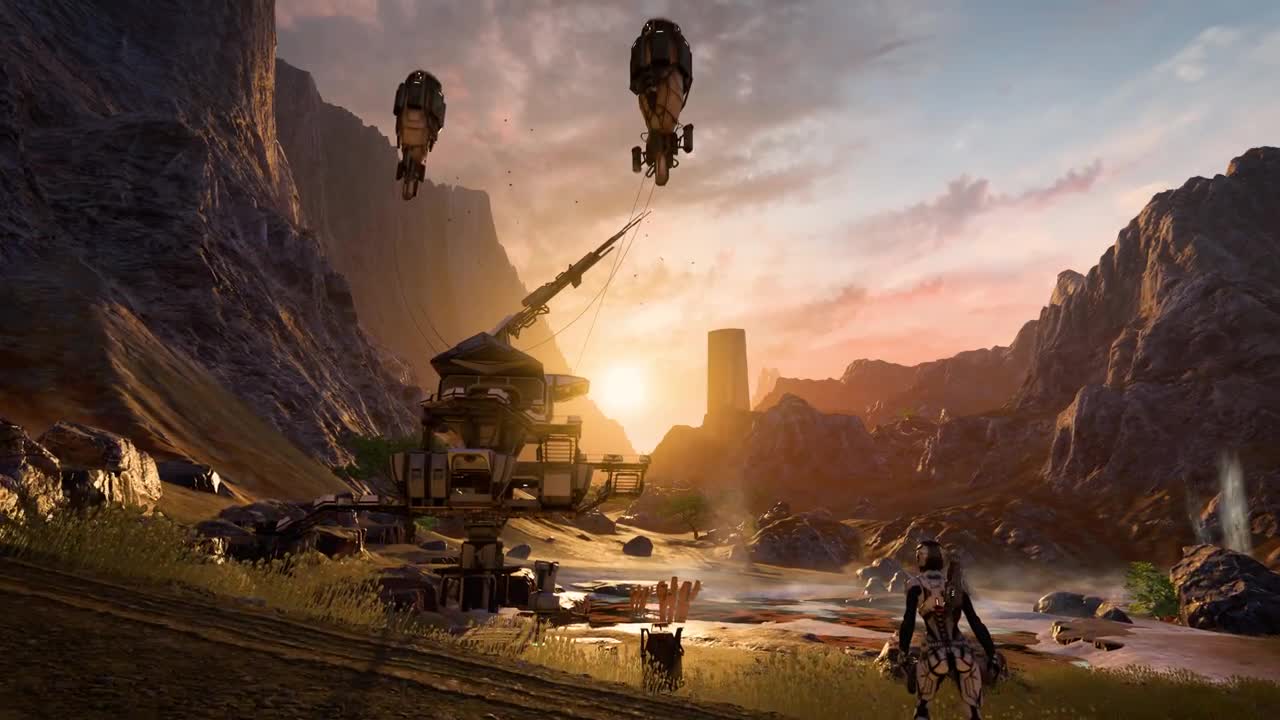
Comprised of 56 accolades in total, the official Trophy list for Mass Effect Andromeda can be found right here, courtesy of Exophase.
-
One of 2017’s Biggest

When collecting our own most-anticipated games of 2017, the PSLS crew pinpointed the likes of Red Dead Redemption 2, Persona 5, and, of course, Mass Effect Andromeda.
-
Launch Trailer & Cinematic Trailer
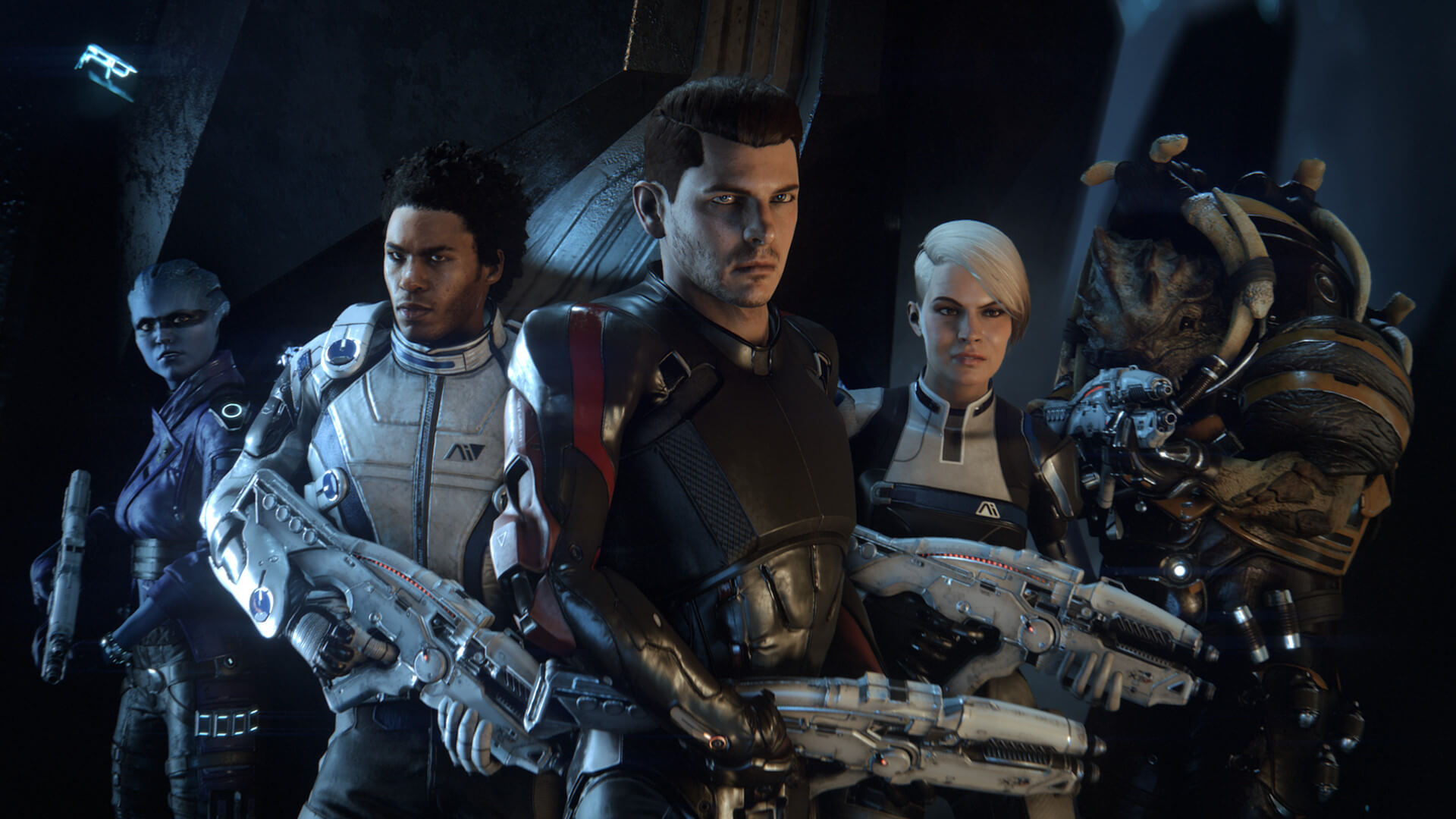
The future of humanity rests on your soldiers, Pathfinder, and the official cinematic trailer for Andromeda asks the question: How far will you go?
There's also a launch trailer that found its way online late last week.
“Unravel the secrets of a vast galaxy, battle hostile alien threats, and build a crew to help you survive it all in Mass Effect Andromeda. Humanity’s future rests on your shoulders. How far will you go?”
-
Rated M for Mature
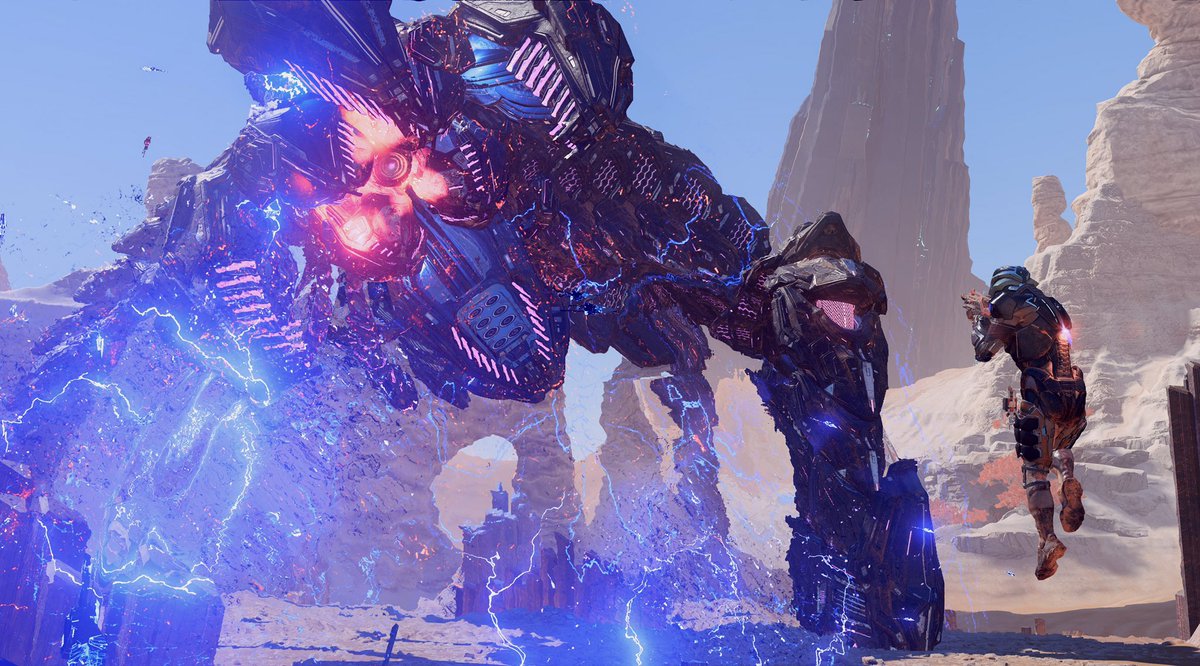
It’s official: Mass Effect Andromeda has been rated M for Mature. Citing blood, nudity, strong language, strong sexual content, and violence, the ESRB description follows:
“This is an action role-playing game in which players lead humanity to a new home across the galaxy. As players explore various planets, they use futuristic weapons (e.g., laser rifles, Cryo-beams, shotguns) and special abilities (e.g., concussive blasts, telekinetic pushes) to combat hostile alien races. Battles are frenetic, highlighted by realistic gunfire, explosions, and screams of pain; enemies sometimes emit splashes of blood when hit.
“During the course of the game, the central character can develop relationships with crew members and engage in brief sexual encounters with them. These brief sequences (couplings) depict sensual caresses, sexual moaning, and hip gyrations; characters’ breasts and/or buttocks are sometimes exposed for prolonged periods. The words “f**k,” “sh*t,” and “a*shole” can be heard in the dialogue.”
-
Unboxing That Shiny Collector's Edition
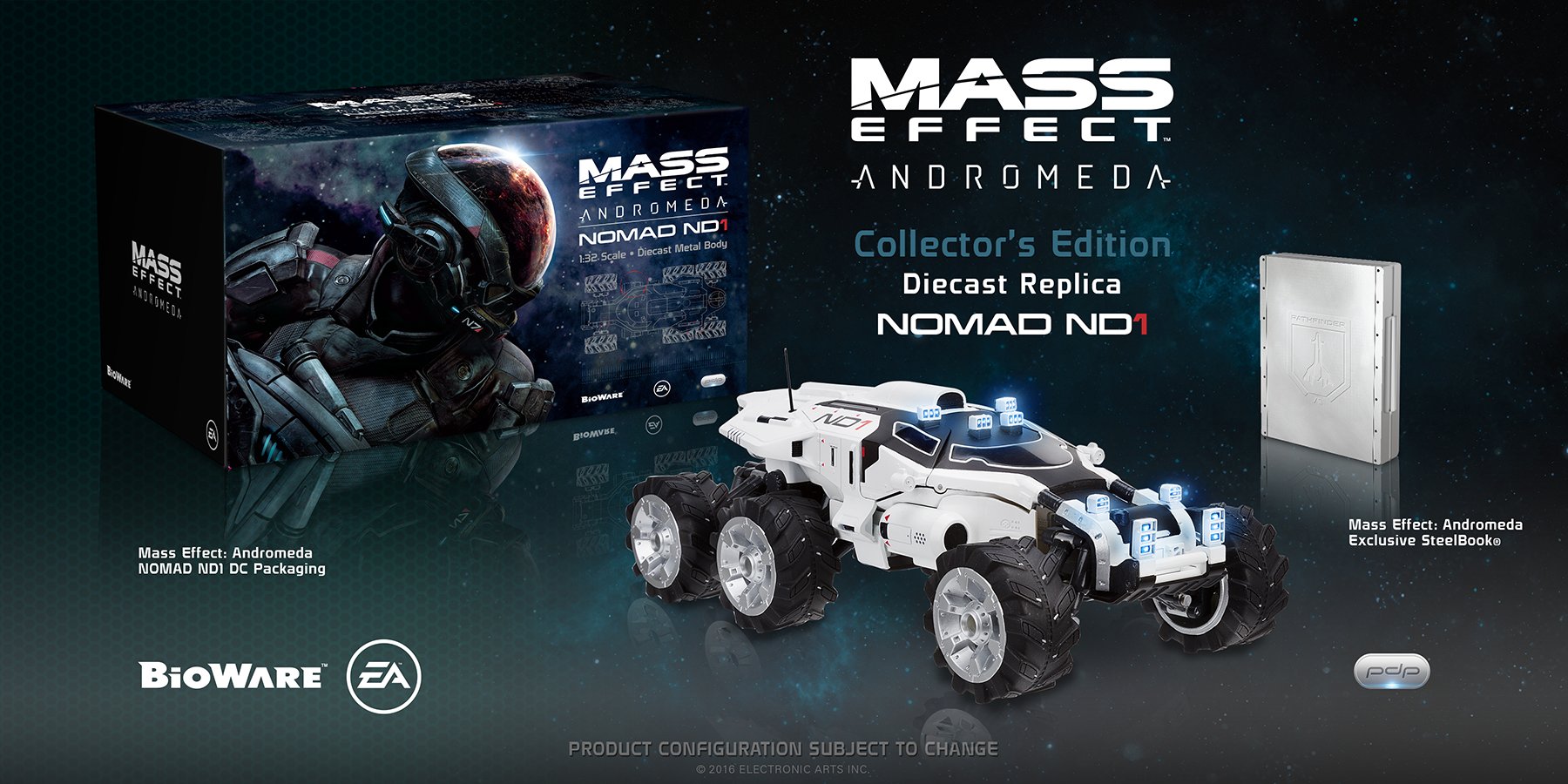
With only a few days left between now and release, Keri Honea cracked open the lid of the Mass Effect Andromeda Collector's Edition. Included in that premium package is a replica of the aforementioned Nomad, along with a hoard of in-game bonuses.
-
Our Final Verdict
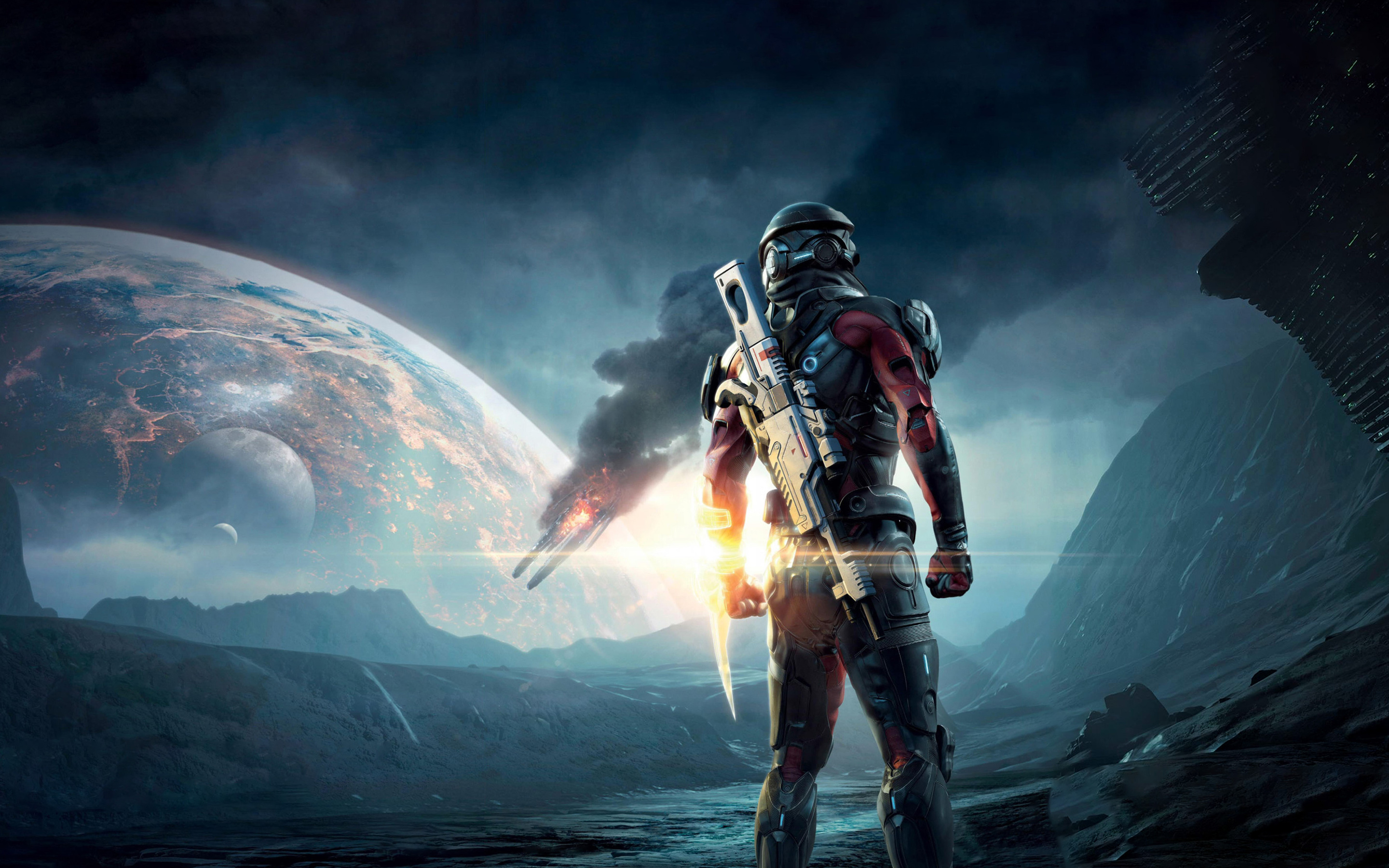
The Mass Effect Andromeda review embargo lifts on Monday, March 20 at 12am PT/3am ET. Keep your peepers peeled on PSLS, then, when Keri Honea will be delivering her verdict from a galaxy far, far away.
